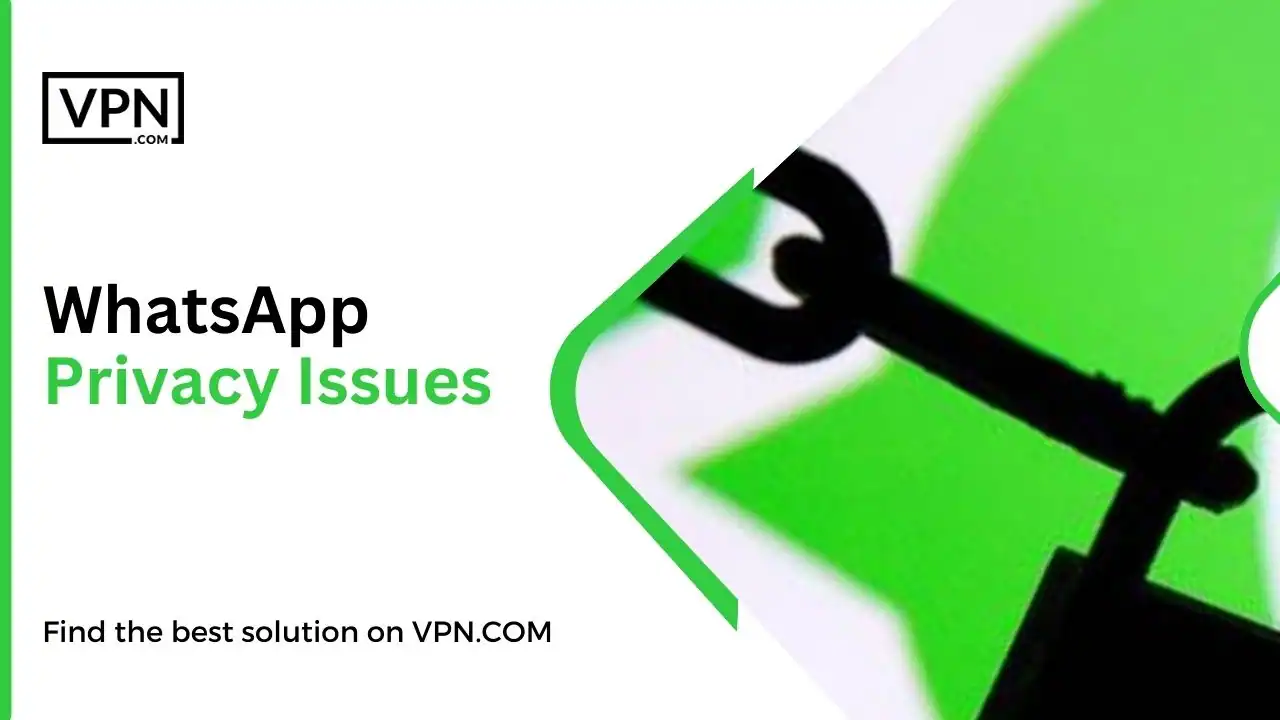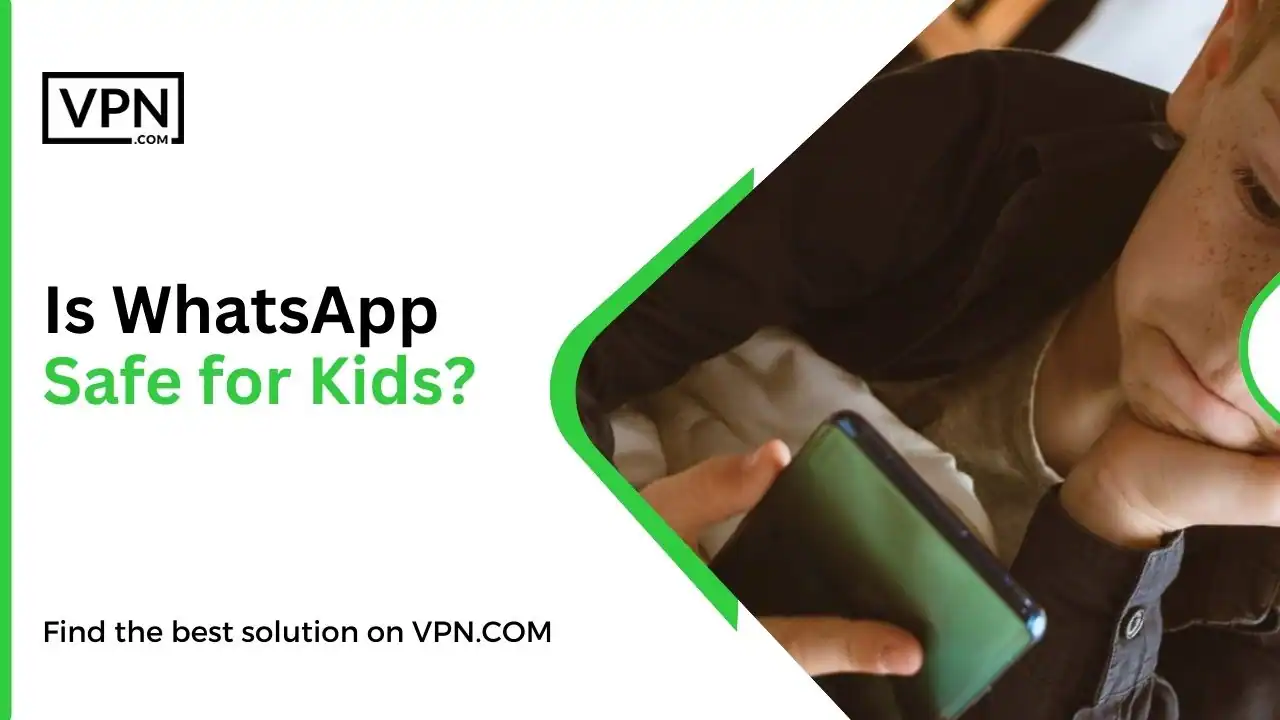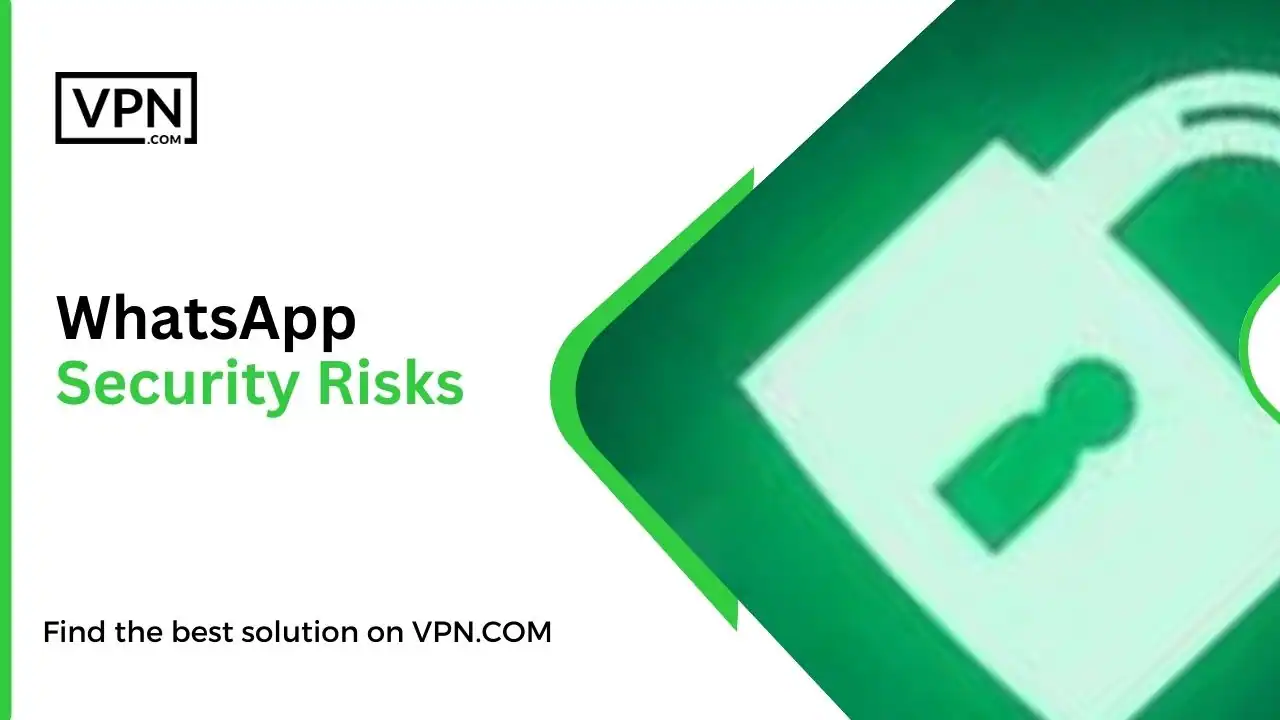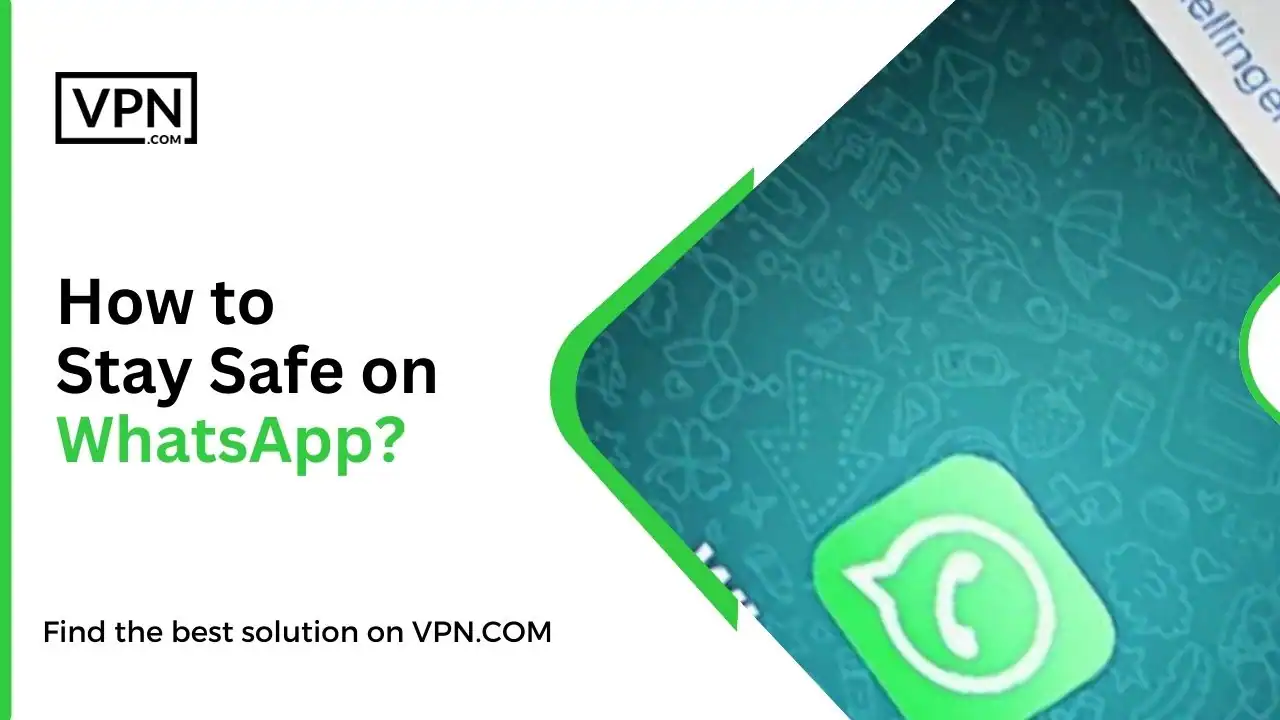WhatsApp Privacy Issues in 2024

WhatsApp is one of the most popular messaging apps in the world, with over 2 billion users because It offers convenient features like texting, voice and video calling, group chats, media sharing, and more. However, despite its popularity, WhatsApp has come under scrutiny over privacy issues and concerns for many times than you can imagine.
In this blog post, we will dive into the WhatsApp privacy policies, security measures, and potential risks and explore questions like–Is WhatsApp safe for personal chats? Can it be hacked? Is it safe for kids? How can users stay secure? What are the Whatsapp privacy concerns in 2023? By the end, you’ll have a clear understanding of the WhatsApp privacy issues and how to safeguard your account so without wasting any more time, let’s go!
Is WhatsApp Safe?
WhatsApp uses end-to-end encryption for communication between users which means messages are secured with a lock and key and only the sender and recipient can access them. Not even WhatsApp can read your chats so for personal chats between known contacts, WhatsApp offers reasonably good privacy.
However, there are still risks like Backups on Google Drive or iCloud are not being encrypted and anyone gaining access to your cloud account can read your chats while Metadata like phone numbers, group names, profile names, and statuses are not encrypted so this can reveal who you are talking to.
Overall, WhatsApp privacy is relatively safe for personal use but users should be cautious about backups, metadata leakage, and device security.
Is WhatsApp Safe for Kids?

For kids, WhatsApp privacy poses some specific privacy risks:
- Stranger danger: Unknown numbers can message your child on WhatsApp which can open the door for cyberbullying, harassment or inappropriate contact
- Group peer pressure: Most people don’t know that someone can add their kids to 18+ groups and exposed to unwanted content or conversations
- Data leaks: Kids may not be cautious about sharing private information like phone numbers, location or photos on WhatsApp and this can lead to misuse of data & personal information
- Inappropriate content: Be careful as your child may be exposed to objectionable videos, links or files forwarded on WhatsApp groups or chats.
To make WhatsApp privacy issues safer for kids, you have to moderate who they can chat with, switch off visibility, disable groups and limit access time & educate your kids on cyber safety, and digital etiquette, and speak to trusted adults if they feel uncomfortable.
You also have to monitor your child’s WhatsApp activity, messages, and contacts occasionally to prevent future problems.
With proper precautions, WhatsApp privacy can be safe for kids but risks need to be managed with parental controls, education, and monitoring.
Is WhatsApp Safe from Hackers?

WhatsApp’s safety from hackers depends on the following factors:
- Do you know that encryption makes it difficult for hackers to read messages but encrypted backups or compromised devices are still vulnerable and hackers can benefit from this
- WhatsApp Privacy ‘View Once’ feature lets photos, videos and files disappear after the recipient views them. But recipients can still screenshot or screen record to save media permanently so sensitive content is still at risk of hacking/stealing/blackmailing, etc
- Most people don’t know that WhatsApp Web sessions give full access to chats from a browser but If a PC got hacked, an attacker can read your chats so we advise you to Log out everywhere is advised
- Malware like Pegasus can infiltrate phones and access WhatsApp chats so keeping your OS and WhatsApp updated is crucial to prevent hackers & cybercriminals from stealing your important or personal data & information
Overall, WhatsApp has strong security and encryption but backup files, desktop sessions, unsafe links, OS vulnerabilities, and compromised devices pose hacking risks. Therefore enabling all privacy settings, securing devices, updating software, using trustworthy links and regularly changing passwords can help stay safe from hackers.
Is WhatsApp Safe for Sending Private Photos?
WhatsApp Privacy issues are relatively safe for sharing private photos between trusted individuals due to Its end-to-end encryption that prevents third parties from accessing them. However, there are risks users should be aware of, like recipients can screenshot, screen record or photograph images received in WhatsApp to permanently save photos even if you delete them.
Most people ignore the fact that media once shared can go viral fast, even if trusted individuals may accidentally or intentionally forward private photos.
Like most apps, WhatsApp Privacy doesn’t have encrypted backups on Google Drive or iCloud are not foolproof because hacking them would expose all WhatsApp media.
And the best part is that WhatsApp’s cloud storage policy allows them to store photos and videos for 30 days after they are downloaded, even after deletion.
However, you’re still not safe from compromised devices, spyware, and social engineering attacks because they can allow hackers to acquire your private media son don’t post sensitive photos as WhatsApp status where they are visible to all contacts is risky.
WhatsApp Privacy Risks

Let’s take a look at some of the most common WhatsApp Privacy Issues * Security Risks which users should be aware of:
Backups Aren’t Encrypted
WhatsApp backups on Google Drive or iCloud are not protected by end-to-end encryption so If someone gains access to your cloud account, they can access your chat history, traded media, contacts and group info. We advise you to enable two factor authentication on your cloud accounts and use strong & unique passwords to prevent unauthorized access.
WiFi And Web Sessions
Most people don’t know that connecting to public WiFi or using WhatsApp Web provides full access to your chats so If the network or computer is compromised, your messages are exposed. Therefore log out of all sessions when not in use and avoid using WhatsApp on unprotected WiFi networks in public places.
Contact Discovery
While your chats are encrypted, your contacts, profile name and photo are visible to all WhatsApp Privacy users by default which allows the strangers to find and message you. You have to change your settings to control who can see your number, profile and status to prevent the strangers from finding you and sending you malicious links.
Data Mining
WhatsApp’s parent company Facebook allows data mining and ad targeting using information like phone numbers and device IDs from their services. While messages are secure, metadata can reveal a lot about your contacts, habits, interests, & locations, therefore, we advise you to don’t send use WhatsApp for business purposes.
Fake News & Hoaxes
Forwards on WhatsApp privacy spread like wildfire, no matter whether it’s fake news, misinformation and hoaxes, everything can go viral fast. Therefore always verify authenticity before believing forwarded messages or content and don’t contribute to false information by forwarding without checking.
Malware, Spyware & Hacking
Malicious software like Pegasus can infiltrate devices and access WhatsApp Privacy chats, media, contacts, location and device data so keep your phone OS, security apps and WhatsApp updated to block intrusions and don’t click shady links or install unauthorized apps to keep yourself safe from cyberattacks.
Social Engineering
Scammers can trick you into giving up your security code or passwords through phishing attacks so always verify their legitimacy before clicking links or calling unknown numbers received on WhatsApp Privacy and enable two factor authentication for added security.
Media Theft
Although illegal, recipients can steal your private media by screenshotting or recording it even on disappearing messages which means that you have to avoid sending risque photos or videos to prevent the misuse.
Third-Party App Risks
Some third-party keyboard apps, stickers, or utilities pose security risks with unauthorized access to chat data which can help the cybercriminals to steal your personal data and private information and media. Therefore, only install reputed apps from official sources and revoke the permissions of unused apps.
Public Group Links
Anyone with a group’s public invite link can join without admin approval which allows the strangers, scammers and spammers to enter groups, post unauthorized content and misuse the information & resources of group members. We recommend you to disable public links and manually review members before contacting any stranger on WhatsApp.
SIM Swap Scams
Attackers can steal your number by transferring it to their SIM card through social engineering which lets them receive verification codes and reset passwords to access your WhatsApp privacy account. You have to add security PINs to your account to prevent unauthorized SIM swaps.
WhatsApp Safety And Privacy Settings

Here are some key WhatsApp privacy settings to enable for better safety:
Step 1: Two Factor Authentication via Google Authenticator or text codes prevents unauthorized login even if an attacker has your password
Step 2: Account lock with PIN prevents SIM swap attacks to gain access via your number
Step 3: Disable ‘Last Seen’, ‘Profile Photo’, and ‘About’ options to prevent strangers from snooping
Step 4: Turn off read receipts & media visibility so contacts can’t see if you’ve read their messages and your photos remain hidden
Step 5: Switch off location sharing and live locations to prevent tracking or turn off storage of media in WhatsApp’s cloud vault which retains data for 30 days after downloading
Step 6: Log out of all WhatsApp Web sessions when not in use to prevent account access from PCs and set chat wallpaper to black or obscure message previews in the notification area
How to Stay Safe on WhatsApp?

Here are 5 tips to use WhatsApp Privacy safely and prevent privacy issues:
Everything you post on WhatsApp privacy–messages, photos, videos, voice notes, documents or status updates, everything is permanently accessible to the receiver. They can capture or misuse your content even if you delete it so avoid sending anything that is illegal, unethical or may come back to haunt you and don’t make the mistake of trusting anyone blindly.
Verify Contacts
Save your contacts using full names so you can identify who messages originate from & ignore or block numbers not in your contacts. If you’re adding new contacts, call them once to ensure it is really the person you know to prevent identity theft.
Spot Scams & Hoaxes
Don’t immediately believe viral posts or forwarded messages pushing investment schemes, fake news, petitions, contests, shopping deals, outrageous claims, etc. You have to verify the facts before forwarding any nonpersonal content because lots of scams and misinformation spread via WhatsApp Privacy.
Use Two Factor Authentication
Enable two factor authentication to add a second layer of security to your account so every time when someone wants to login your account, it requires a PIN or text code while logging in, in addition to your password so if someone knows your password, they still can’t logging to your account.
Limit Groups
Public groups and large groups pose risks of abuse, spamming, and leaks of phone numbers or objectionable content so keep groups small and private, comprising only trusted individuals. And don’t forget to review members and disable public links & immediately leave all the groups which are sharing uncomfortable photos and videos.
FAQs
Is WhatsApp safer than texting?
WhatsApp Privacy is generally safer than regular texting because of its end-to-end encryption because texts do not have this level of privacy. However, WhatsApp still has risks like backing up chats to the cloud unencrypted, metadata leaks & compromised devices so while more secure, WhatsApp needs safety precautions as well.
Is it safe to add strangers to my WhatsApp?
No, it is risky to add strangers to your WhatsApp Privacy contacts because they can obtain your number, photos, status updates and potentially target you with spam, scams or harassment. You also have to avoid giving your number or chatting to unknown numbers & confirm any new contact is someone you know before adding them.
Can someone access my WhatsApp without my knowledge?
It is possible for someone to access your WhatsApp account and read your chats without your knowledge through methods like hacking your phone, stealing your SIM card to receive verification codes, getting access to your cloud backup or using WhatsApp Web on a compromised computer if you do not log out.
Conclusion
WhatsApp has grown into the world’s largest messaging platform enabling convenient audio, video, and text chats but its immense popularity does not make it immune to privacy troubles and security risks.
While WhatsApp privacy uses sturdy end-to-end encryption, several vulnerabilities still facilitate hacking, data leaks, and misuse if users do not exercise caution in sharing information and enabling security options.
However, users can certainly avoid many pitfalls of WhatsApp privacy concerns 2023 by making informed choices including selective sharing of photos, videos or files even with trusted contacts, verify strangers before adding them, leave groups with objectionable content, restrict media visibility, enable two factor authentication and keep your software up-to-date.
For safe usage, one must follow cybersecurity best practices like strong unique passwords, caution against phishing links, downloading only apps from official sources, limiting access on public WiFi, reporting spam or violations, and assuming everything shared can become public.
Customer Reviews for NordVPN: In-Depth Review, Tests, and Stats
![WhatsApp Privacy Issues in [year]](https://cdn.vpn.com/wp-content/themes/VPN/images/trustpilot/trustpilot_5_star.png)
Connection issues with MLB.TV
May, 2 2023
![WhatsApp Privacy Issues in [year]](https://cdn.vpn.com/wp-content/themes/VPN/images/trustpilot/trustpilot_5_star.png)
Prompt customer service
May, 6 2023
![WhatsApp Privacy Issues in [year]](https://cdn.vpn.com/wp-content/themes/VPN/images/trustpilot/trustpilot_5_star.png)
I would highly recommend
December, 15 2023


![WhatsApp Privacy Issues in [year]](https://cdn.vpn.com/wp-content/themes/VPN/images/icons/payment-methods/mastercard.png)
![WhatsApp Privacy Issues in [year]](https://cdn.vpn.com/wp-content/themes/VPN/images/icons/payment-methods/american_express.png)
![WhatsApp Privacy Issues in [year]](https://cdn.vpn.com/wp-content/themes/VPN/images/icons/payment-methods/discover.png)